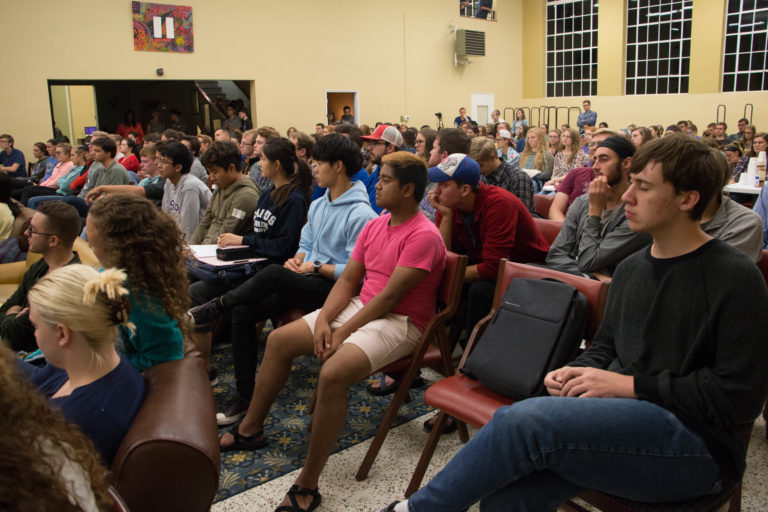Anna Lauren Jacobs, Contributing opinion
Asbury University is a school with a long history centered around movements of God. On Asbury’s website, there are eight major revivals listed during a period of over 114 years, the most notable being the revivals of 1950 and 1970. Some of these movements of God have coincided with revivals scheduled by the Spiritual Life staff, but some have not, raising the question whether scheduled revival is a proper method of energizing the spiritual pulse on campus or an example of humans trying to force a movement of the Holy Spirit.
As a freshman coming from a non-Wesleyan background, I was very interested in Asbury’s revival history and what revivals would look like now that I was on campus. When Fall Revival was held, I made every effort to attend all the events that week and felt that I had encountered God. However, I realized, it was not a more significant encounter than any others I had experienced alone in my dorm room, praying with friends in Hughes or simply walking to class marveling at creation. I began to wonder if scheduled revivals were at all necessary, or even useful, to the spiritual aspect of Asbury’s campus.
As I came back to Asbury for the spring semester, I spent a lot of time in both individual and corporate prayer centering on the topic of revival. I really wanted God to show up in a huge, undeniable way on Asbury’s campus. I decided to pray extensively for Holiness Emphasis Week and its associated activities. By the end of that week, I had encountered God in so many ways, but they were not the dramatic moments I had envisioned. Rather, they were simple moments of discernment, peace and hope found through worship, prayer and conversations.
I again doubted the wisdom of scheduling revival, but I realized that these experiences were made possible for me because I was expecting to meet God. I firmly believe that God honors the earnest desire to seek and know Him, and He met me when I came desperate to commune with Him. That earnest expectation had built up in me because I knew Holiness Emphasis Week was coming up, and I had intentionally prepared my heart for God to reveal Himself to me during that time. I deliberately set aside time that week to step out of my ordinary schedule and focus intently on Him.
As I have conversed with other students, I have found the same experience echoed multiple times. The Holy Spirit was not being contained by the limitations of the scheduled week; instead, the student body had been preparing for this week and extending an invitation to the Spirit to meet them.
I believe that scheduled revivals are not at all wrong, misguided or artificial attempts to force God into a box. Rather, I agree with the Associate Dean of Spiritual Life Greg Haseloff who said, “Revival is meant to be viewed as a time of heightened awareness of God’s constant sanctification process.”
Because of this, scheduling a revival is not “planning a move of God — it is scheduling intentionality,” said Haseloff. However, scheduled revivals do create a time to lean in and invite God to move in a fresh and new way.
Obviously, planned revivals do incorporate specific elements, like a clear presentation of the gospel, and there is a clear focus on the themes of salvation and recommitment to Christ and His work. Rather than forcing the Spirit to bend to human will, these emphases allow an opportunity for students to respond to God’s work.
Scheduled revival “allows individuals to prepare themselves for a larger corporate movement,” said Vice President of Spiritual Life Board Kathryn Brown. At Asbury, we seek for revival to draw us together in fellowship and the power of the Holy Spirit. Scheduling these times of revival enhances the ability of students to prepare their hearts for a heightened awareness of God’s consistent renewal and work in their lives.




